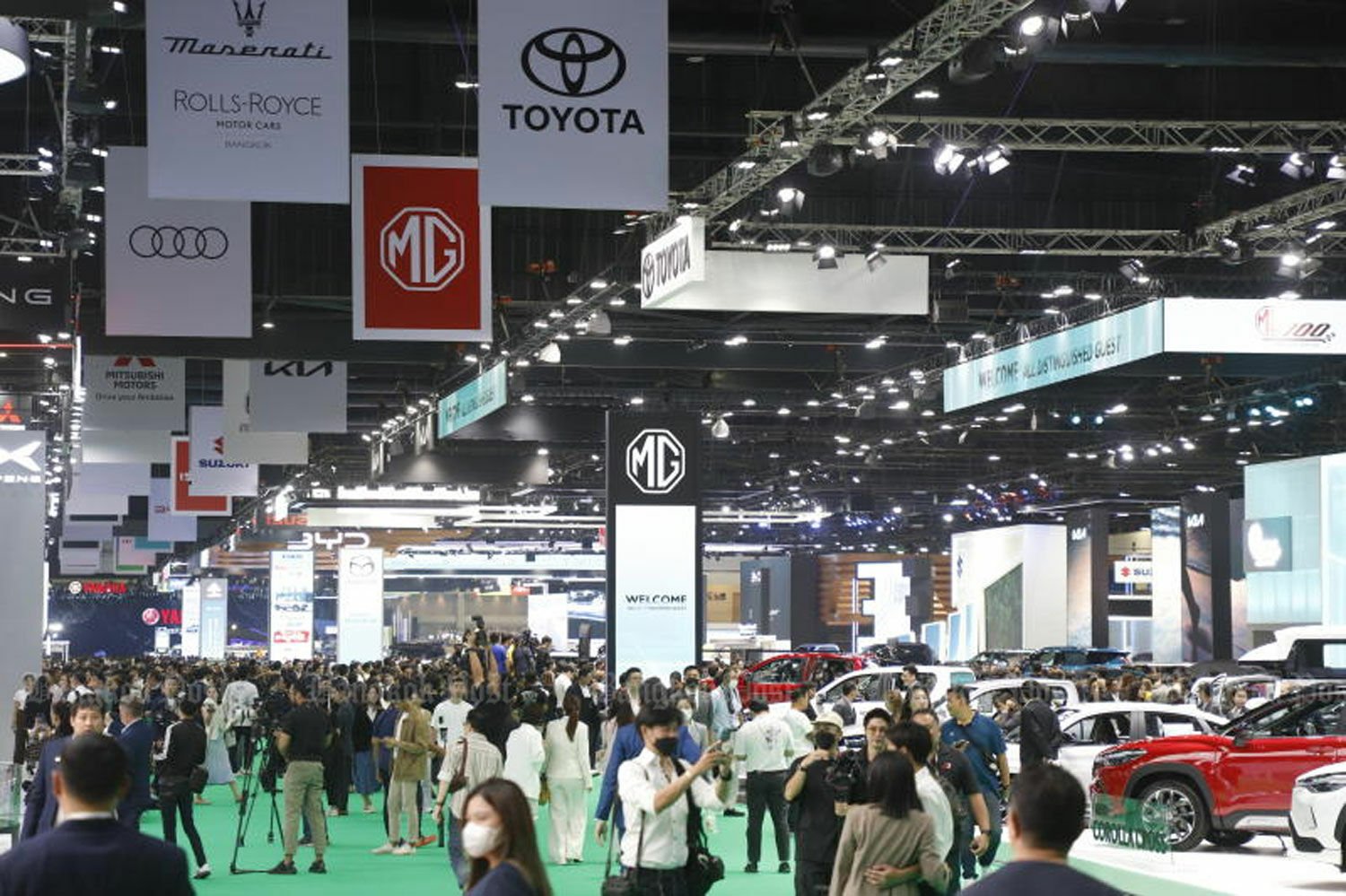Thailand’s car industry slams the brakes: August downturn hits hard

Thailand’s automotive industry is hitting the skids, with car manufacturing, domestic sales, and exports all taking a nosedive in August, according to the Federation of Thai Industries (FTI).
Surapong Paisitpatanapong, Vice-Chairman and spokesperson for the federation’s Automotive Industry Club, sounded the alarm, pointing to tough times in securing auto loans as a major roadblock for domestic sales.
In August, total car manufacturing reached 119,680 units, marking a 29.5% decrease compared to the same month last year. Production for the domestic market fell by 40.4% year-on-year to 36,892 units, while cars produced for export decreased by 6.6% year-on-year to 82,788 units.
Surapong attributed the sharp 40.4% decline in domestic car production to sluggish sales in Thailand, a result of banks tightening their lending criteria amid high household debt levels.
Total car sales in the country dropped by 24.9% year-on-year in August to 45,190 units. However, there was growth in sales of battery electric vehicles (20.4% increase to 7,302 units) and hybrid electric vehicles (35.4% increase to 8,611 units).
A significant drop in sales of internal combustion engine-powered cars (39.3%) and pure pickups (37.1%) majorly contributed to the overall decline in sales figures.
“Bankers have become more selective about lending money due to concerns over non-performing loans (NPLs),” said Surapong.
The club reported that NPLs on cars reached a value of 254 billion baht (US$7.8 billion) in the second quarter of 2024, a 29.7% increase year-on-year from the same period in 2023.
“Financial institutions are feeling more at ease as debt levels decline, following the implementation of measures to tighten auto loan regulations,” added Surapong.
According to the National Economic and Social Development Council, growth in household debt slowed in the first quarter of this year, partly due to financial institutions tightening their loan extension criteria. Household debt stood at 90.8% of GDP, down from 91.4% in the previous quarter, reported Bangkok Post.
Car exports in August fell by 1.7% year-on-year to 86,066 units. This decline was attributed to a shortage of roll-on/roll-off ships, the impact of geopolitical conflicts in the Middle East, and issues related to plant species found among exported cars. The latter caused delays in shipping pickups to countries with stringent measures against foreign plant species.
Latest Thailand News
Follow The Thaiger on Google News:


























